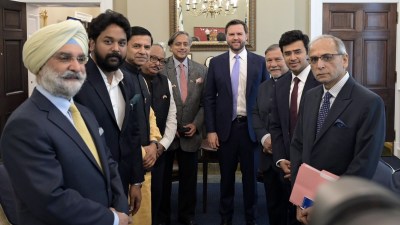New permits: Bank hopefuls stare down road fraught with cost,risks
New Permits: The pool of 26 entities hoping to get the licence was smaller than analysts had expected.
Companies looking to set up Indias first new banks in nearly a decade have a long and costly road ahead of them.
While corporate heavyweights from the Tata,Birla and Bajaj groups to Anil Ambanis Reliance Capital are among those applying for the right to establish full-fledged banks,the pool of 26 hopefuls was smaller than analysts had expected.
Stiff requirements on branch placement and liquidity make for an arduous path to profitability and scale,and have deterred some would-be applicants.
It will require a considerable amount of marketing expense,branch expansion, said Vijay Mahajan,founder of microlender Basix,which considered applying for a licence but did not.
You have to be profitable at the same time. If you have a bank which has losses for seven years continuously,nobody will put their deposits there.
Banks must keep 27 per cent of deposits at the Reserve Bank of India and in government bonds,even in their startup years. That means they can lend only Rs 73 of every Rs 100 raised in deposits. One in four branches must also be set up in rural areas where no bank now exists an expensive endeavour. While those requirements are the same for existing lenders,the rules were implemented after incumbent banks had already built scale. For example,the rural branch criterion only applies to new branches.
One blue chip corporate house expected to be among the front-runners for a licence opted against applying.
Mahindra amp; Mahindra Financial Services said it was put off by the liquidity rules and the requirement to convert all existing branches to full-service bank offices within 18 months while at the same time setting up new rural branches. The lure of banking is the ability to raise low-cost deposits and generate fat margins. Net interest margins for Indian private sector banks are around 3.5 per cent,among the highest in the world.
Yes Bank,Kotak Mahindra Bank and IndusInd Bank,among Indias newer banks,pay 6 to 7 per cent interest on savings deposits. Most banks pay 4 per cent.
Banking on licence
The Reserve Bank of India said on July 1 that it had received 26 applications for new banking licences
The central bank last allowed new banks in 2003
The applicants include government-sponsored financial institutions such as IDFC and IFCI and India Post,the state-run postal service
Anil Ambani-controlled Reliance Capital,as well as Tata Sons and Aditya Birla Nuvo,the holding companies of the Tata Group and the Aditya Birla Group,are also in the race
The other applicants mostly comprise non-bank finance companies
- 01
- 02
- 03
- 04
- 05































